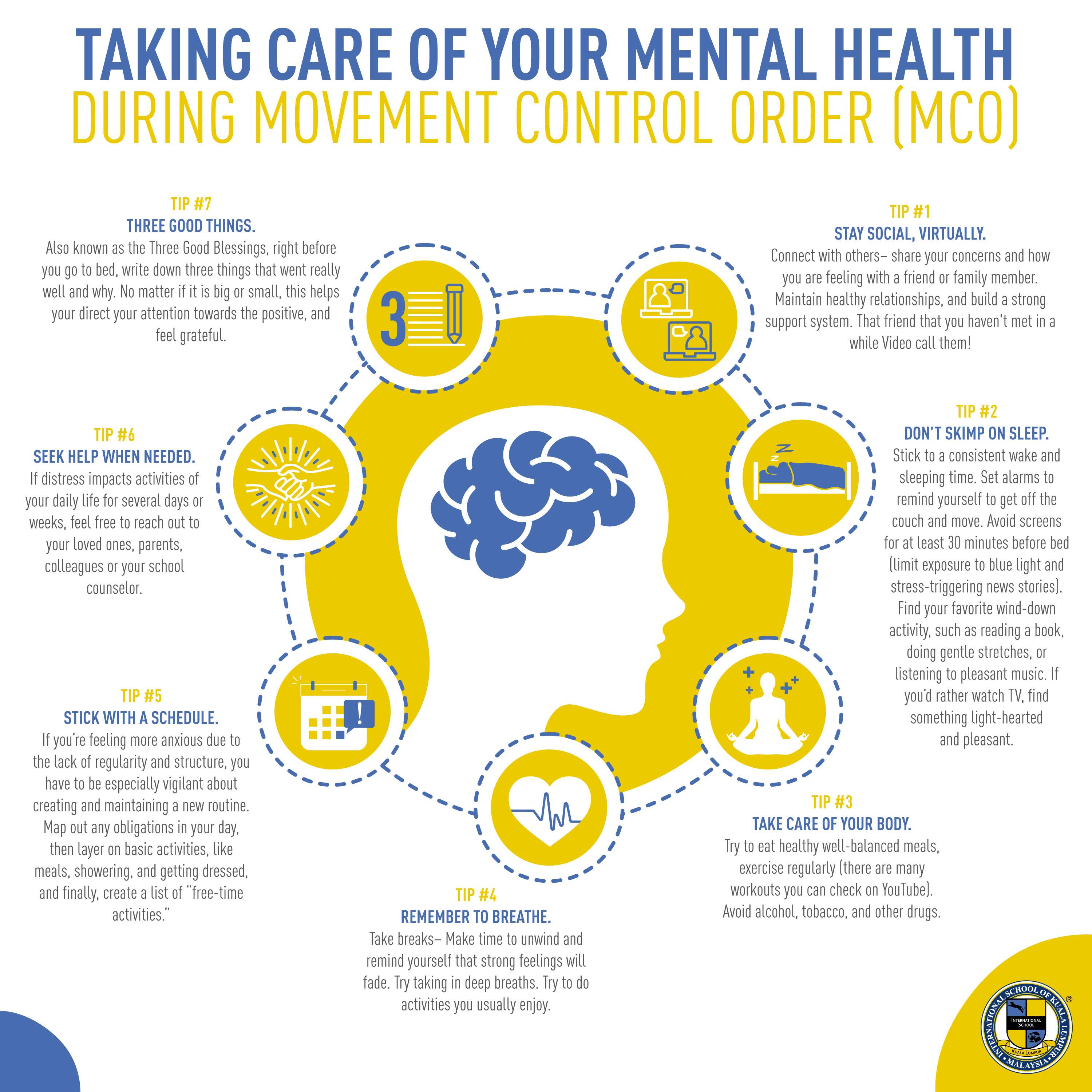We have all been adhering to the MCO and taking precautions by staying home and following the rules for social distancing but often the importance of taking care of our mental health is sometimes overlooked.
Here are some insightful tips on how we can continue to nurture our minds and well being:
Tip #1: Stay Social, Virtually. Connect with others– share your concerns and how you are feeling with a friend or family member. Maintain healthy relationships, and build a strong support system. That friend that you haven’t met in a while? Video call them!
Tip #2: Don’t Skimp On Sleep. Stick to a consistent wake and sleeping time. Set alarms to remind yourself to get off the couch and move. Avoid screens for at least 30 minutes before bed (limit exposure to blue light and stress-triggering news stories). Find your favorite wind-down activity, such as reading a book, doing gentle stretches, or listening to pleasant music. If you’d rather watch TV, find something light-hearted and pleasant.
Tip #3: Take Care of Your Body. Try to eat healthy well-balanced meals, exercise regularly (there are many workouts you can check on YouTube). Avoid alcohol, tobacco, and other drugs.
Tip #4: Remember to Breathe. Take breaks– Make time to unwind and remind yourself that strong feelings will fade. Try taking in deep breaths. Try to do activities you usually enjoy.
Tip #5: Stick With a Schedule. If you’re feeling more anxious due to the lack of regularity and structure, you have to be especially vigilant about creating and maintaining a new routine. Map out any obligations in your day, then layer on basic activities, like meals, showering, and getting dressed, and finally, create a list of “free-time activities.”
Tip #6: Seek Help When Needed. If distress impacts activities of your daily life for several days or weeks, feel free to reach out to your loved ones, parents, colleagues or your school counselor.
Tip #7: Three Good Things. Also known as the 3 Good Blessings, right before you go to bed, write down three things that went really well and why. No matter if it is big or small, this helps your direct your attention towards the positive, and feel grateful.
We hope you find all of these tips useful! Stay home and stay safe!



